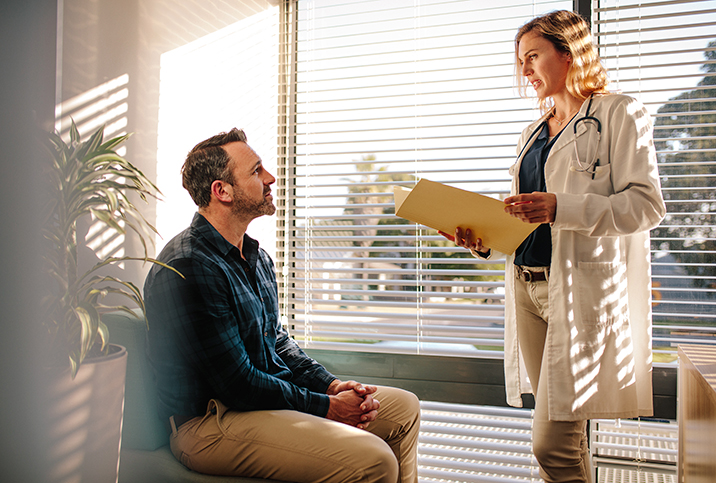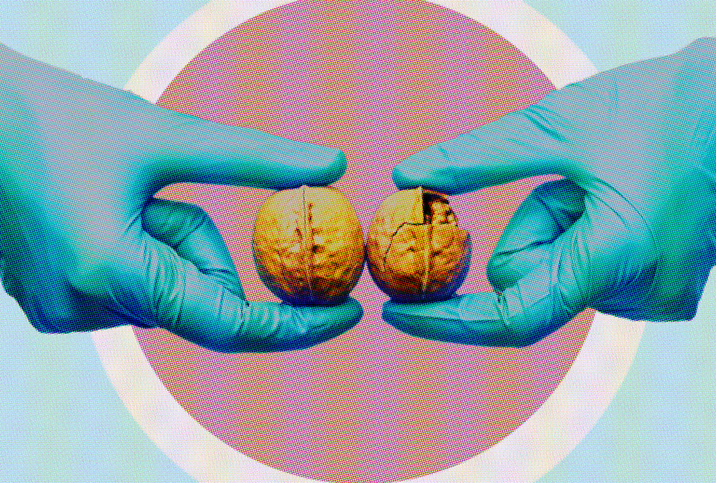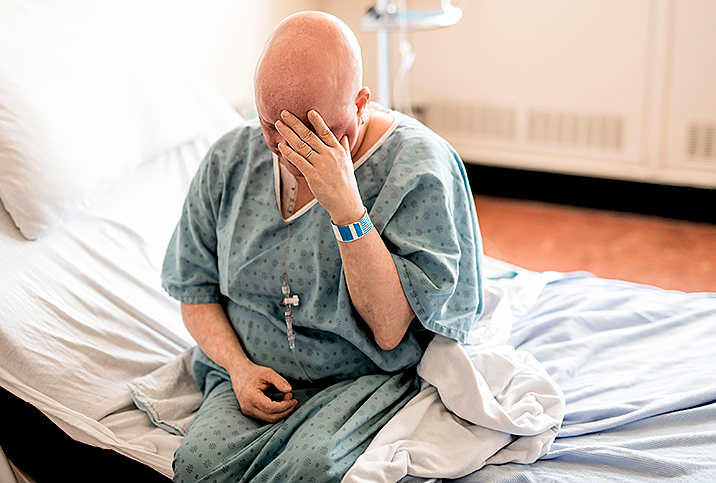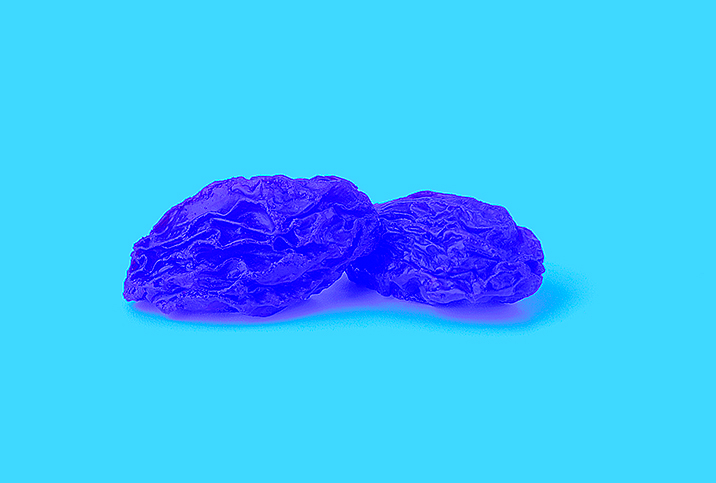I Beat the One-Two Punch of Testicular Cancer and Depression

I battled testicular cancer in the winter of 2016-2017. While it was the most difficult physical challenge I've ever faced, I didn't realize the full ramifications of facing my own mortality until about a year later.
One year after the surgery to remove my murderous ball, I was watching the season two premiere of "Stranger Things." One of the main characters, Will, was undergoing some PTSD-like symptoms in the wake of the one-year anniversary of his own traumatic event. While I didn't exactly square off against a demon from another universe, cancer isn't any less of a foe. And this parallel between the show and my own life triggered a panic attack.
From there, I realized I was sliding deeper and deeper into depression. I couldn't take it anymore and talked to my doctor about what I was facing. Though it took me more than a year to admit I was having mental health problems, I'm glad I discussed my cancer and depression.
If you're facing a similar situation, I hope my lessons learned can help you.
1. The conversation led me to taking antidepressants
One decision we made at the meeting was that I should try a course of antidepressants. I had gone through a severe bout of depression in high school, and medication was helpful. Since it worked then, I hoped it would again, though it took a bit of a fine-tuning process to get the dosage right.
Once we did, I noticed I began feeling better. I was much less "doom and gloom" and was able to see things in a more positive light. Simply put, I have a chemical imbalance in my brain, and the medication helps to even this out. I don't feel shame in having to take these meds, but I also realize they are not the only thing needed to help combat depression.
2. We also discussed going to therapy
While deciding to go back on medication was an easy choice for me, going to therapy was much harder. I didn't want to sit in a room with someone and talk about my feelings. Yet I did it to humor my doctor, and I visited a therapist he recommended. Since I didn't really put my all into it, though, the sessions went nowhere.
On a subsequent follow-up, my doctor asked how I was doing. I told him the meds were helping but I felt I needed more support. He again encouraged me to find a therapist who worked for me. This time, I put more effort into it and found a therapist I continue to see to this day.
The gentle prodding of my doctor to give therapy a real chance was the boost I needed.
3. I felt normalized
As I talked with my doctor during appointments, it became clearer that many people, especially those who have gone through cancer, experience depression. I thought I was in the wrong for surviving cancer and still feeling sad about it. I felt shame for being alive and miserable while others passed away. However, in opening up to my doctor and sharing my feelings, I realized this is normal and I shouldn't feel bad about it.
4. I realized I could help normalize the conversation
Part of sharing my experience with testicular cancer is to normalize the conversation around men's health. And, yes, men's health includes mental health. By freely speaking about my true feelings, it holds space for others to do the same. Somewhat paradoxically, we're only as strong as we allow ourselves to be vulnerable.
When I speak about my experiences with mental health issues, I hope it shows others it's OK to not be OK. We should strive to overcome the stigma associated with depression, anxiety and other conditions, and a conversation with my doctor was a catalyst for me to realize that.
5. I truly began healing and knew how to stay on track
I remember reflecting on the first year and how I healed. I realized there was an inverse relationship between my physical healing and my emotional well-being. As my body rebuilt itself and my hair grew back, and I experienced fewer physical side effects of chemo, my internal psyche was crumbling. When I reached the aforementioned "Stranger Things" episode, I was more or less physically back to normal, but I was clearly in poor mental shape.
Talking to my doctor about mental health allowed me to begin healing from the inside. It's been nearly six years since my cancer diagnosis, and I have come a long way since then. It hasn't been a linear journey, and I am constantly aware of what to look for when it comes to my mental health. However, if I didn't make the choice to have that initial conversation with my doctor, I may not have gotten to the point I am at today.
Justin Birckbichler is a men's health advocate, testicular cancer survivor and the founder of aBallsySenseofTumor.com.



















Commentary